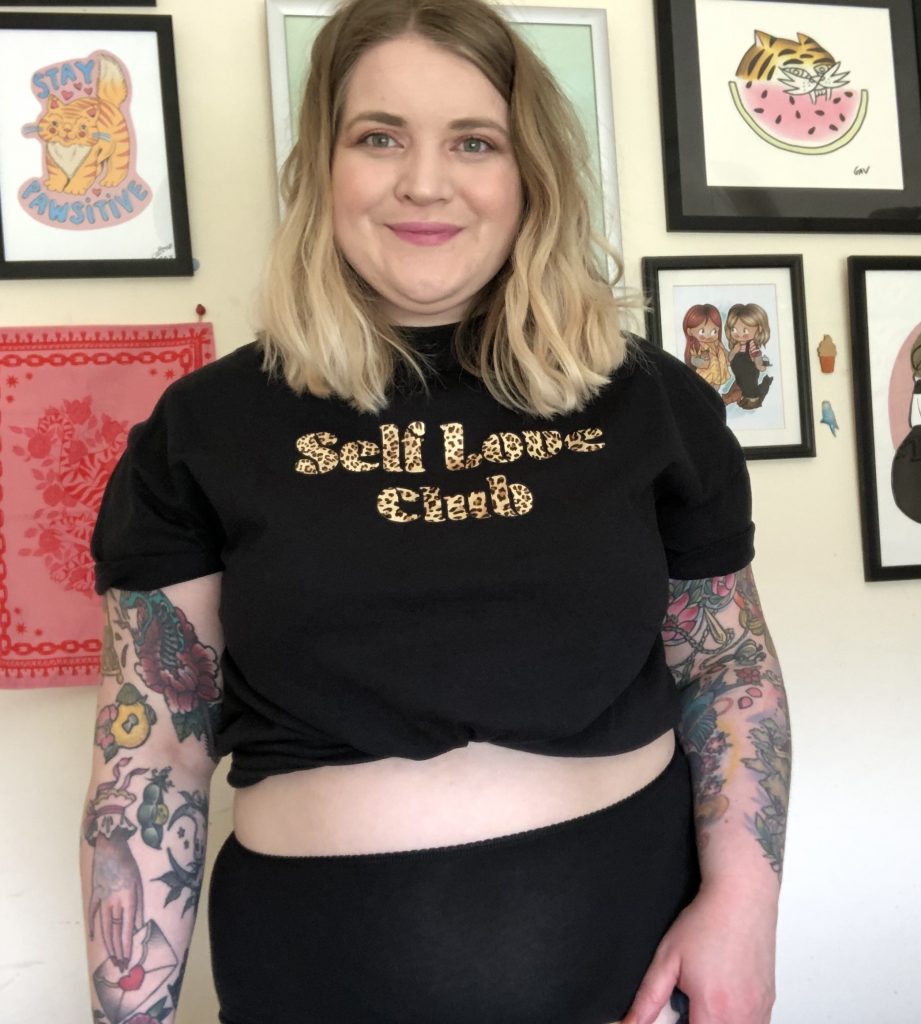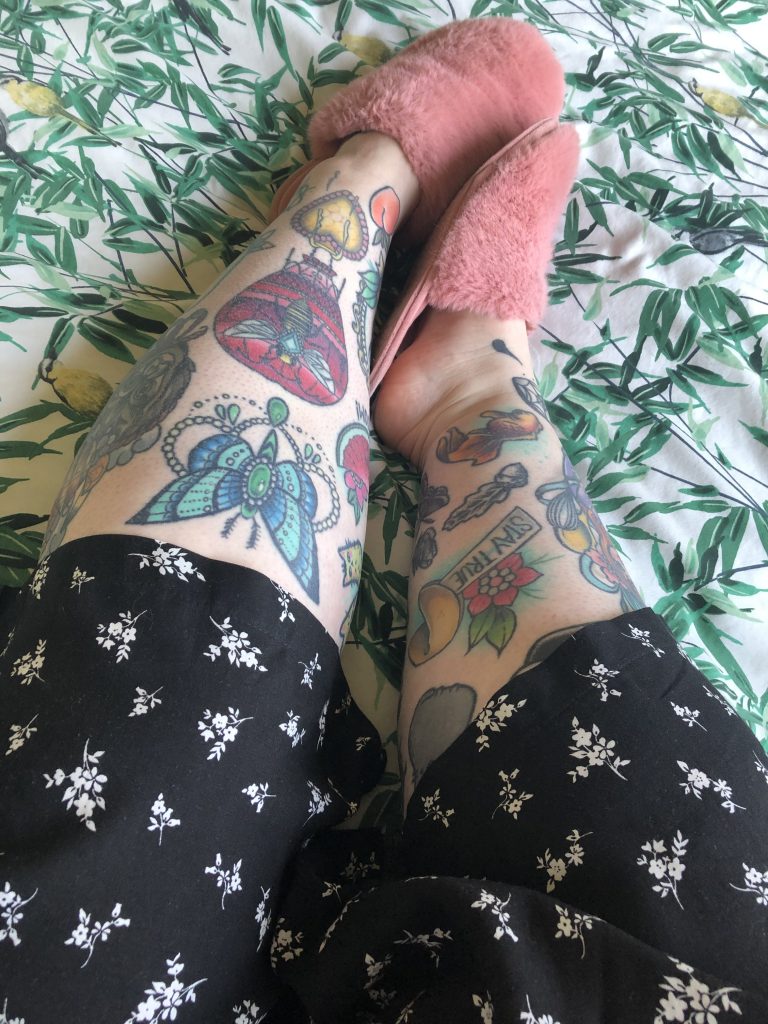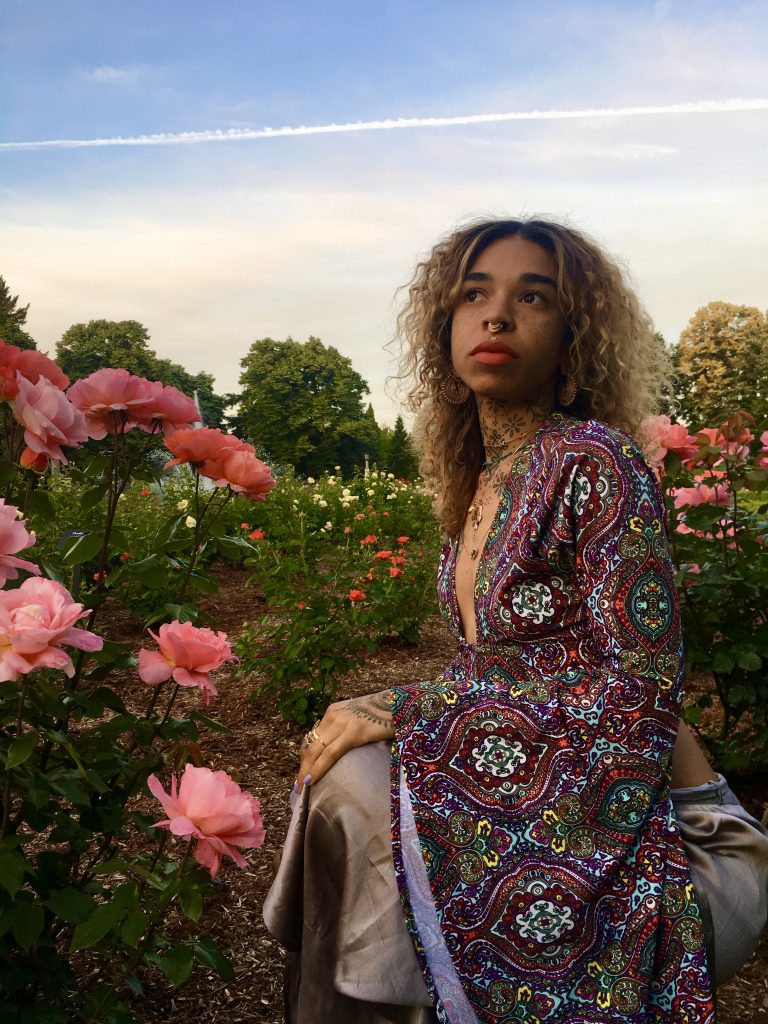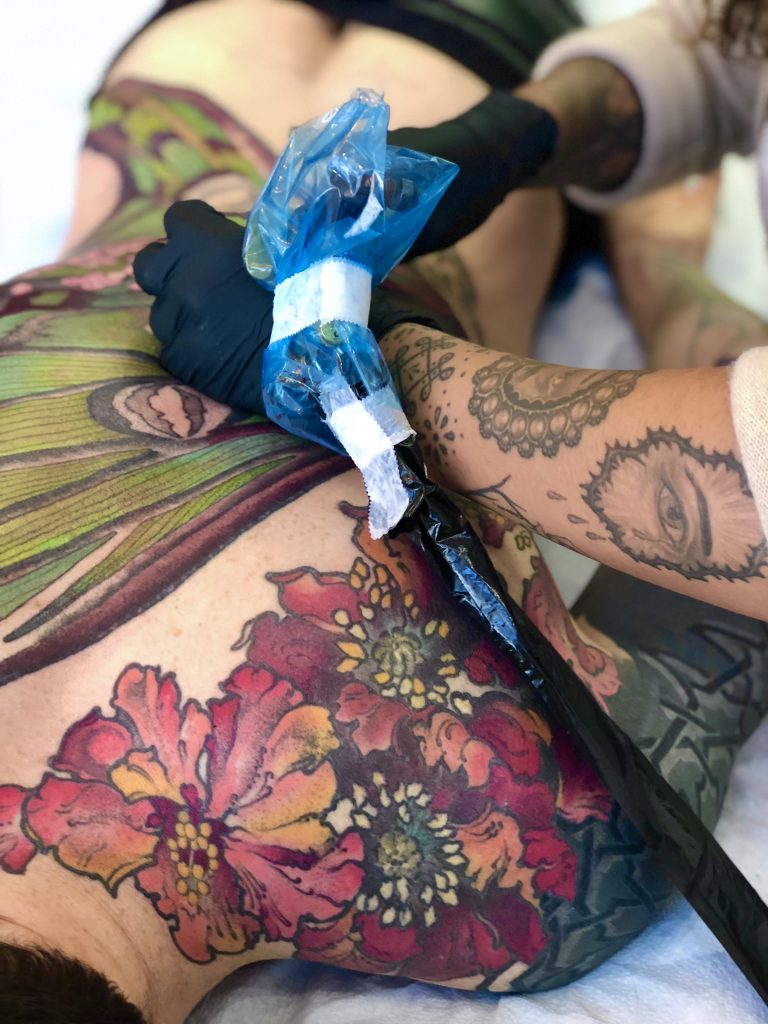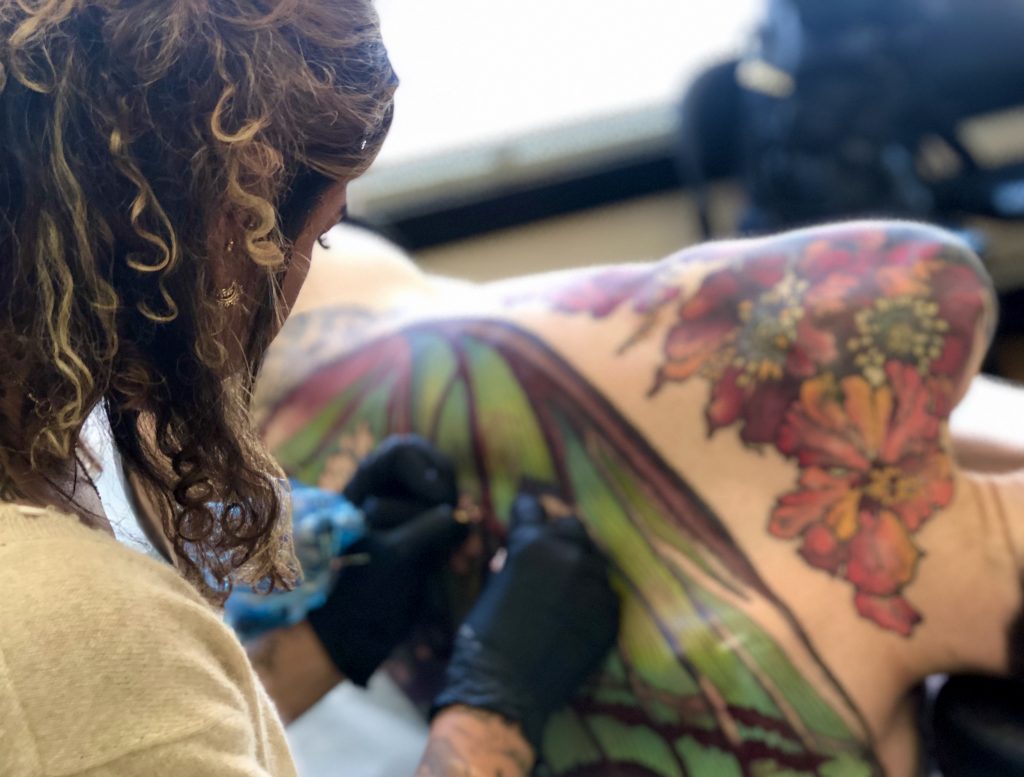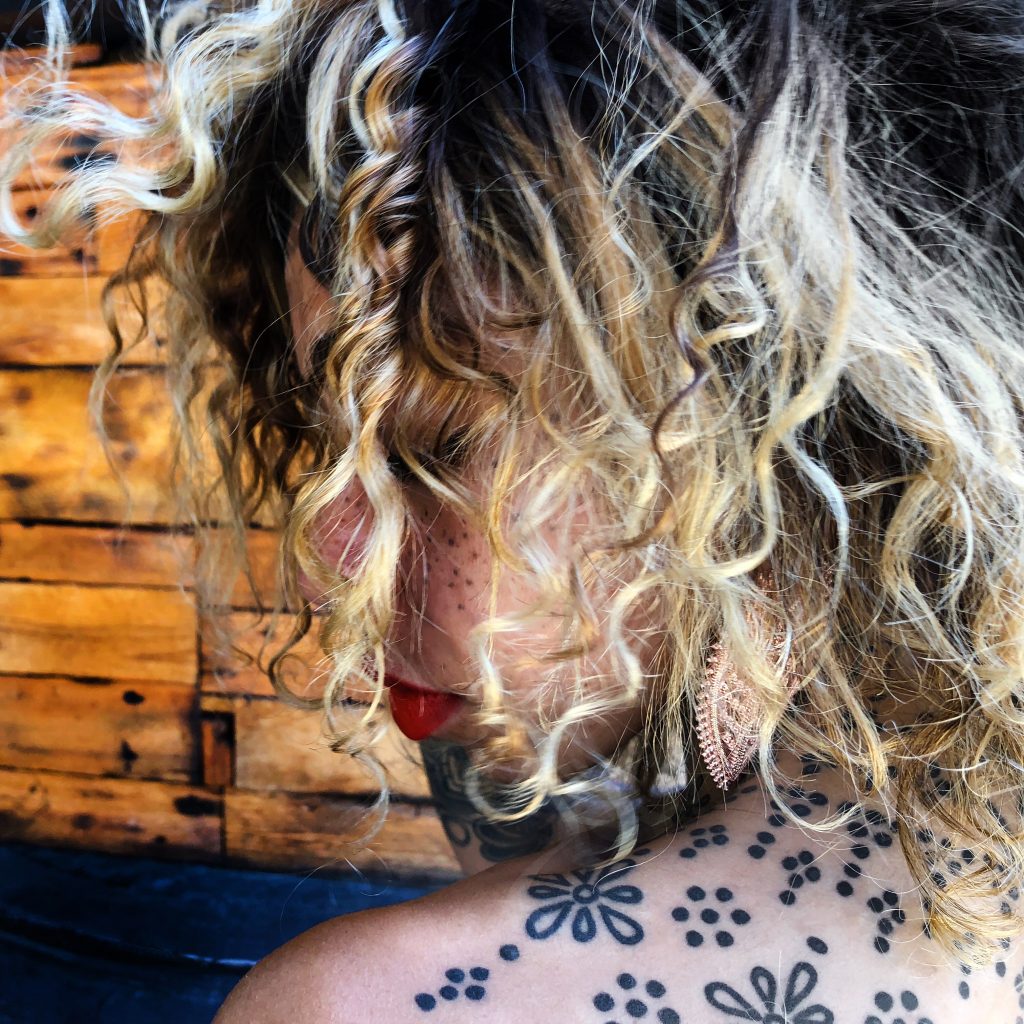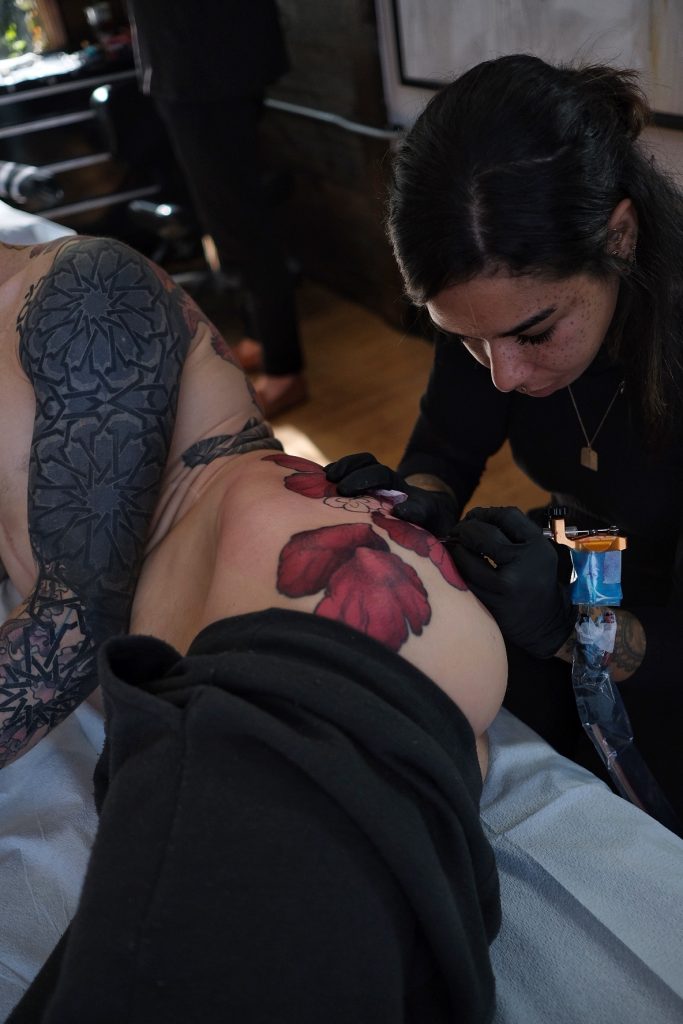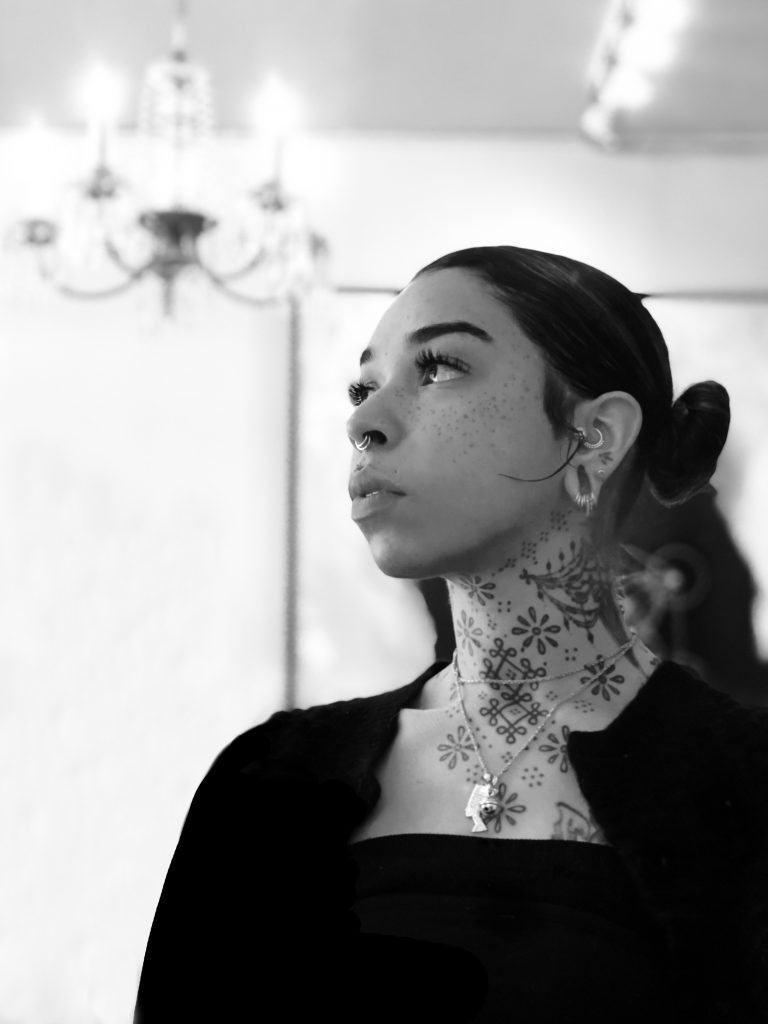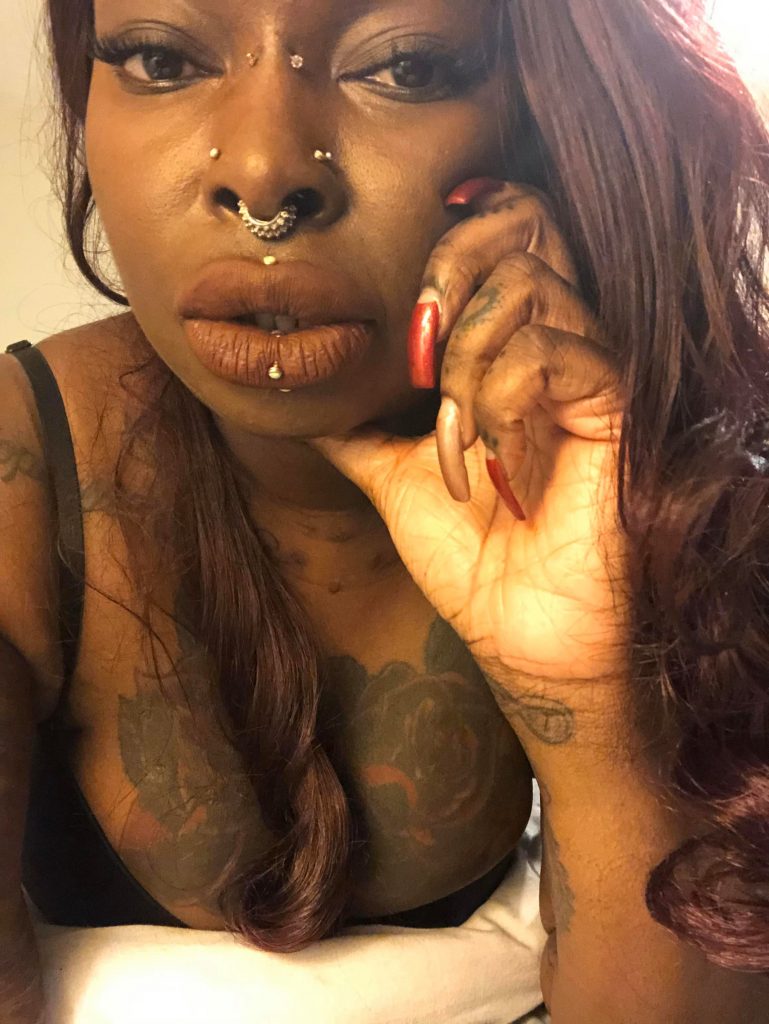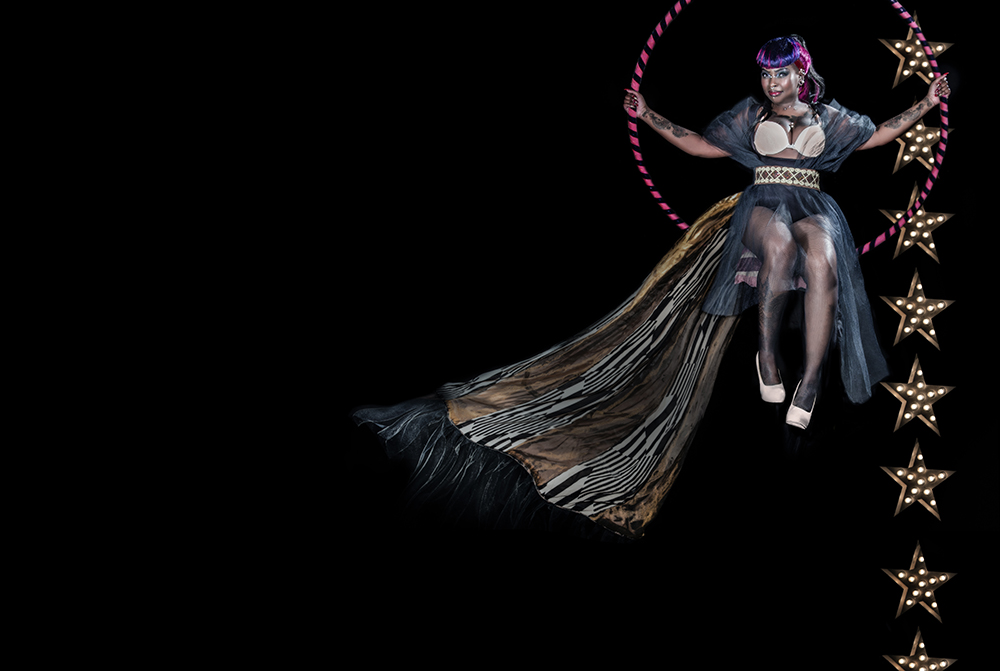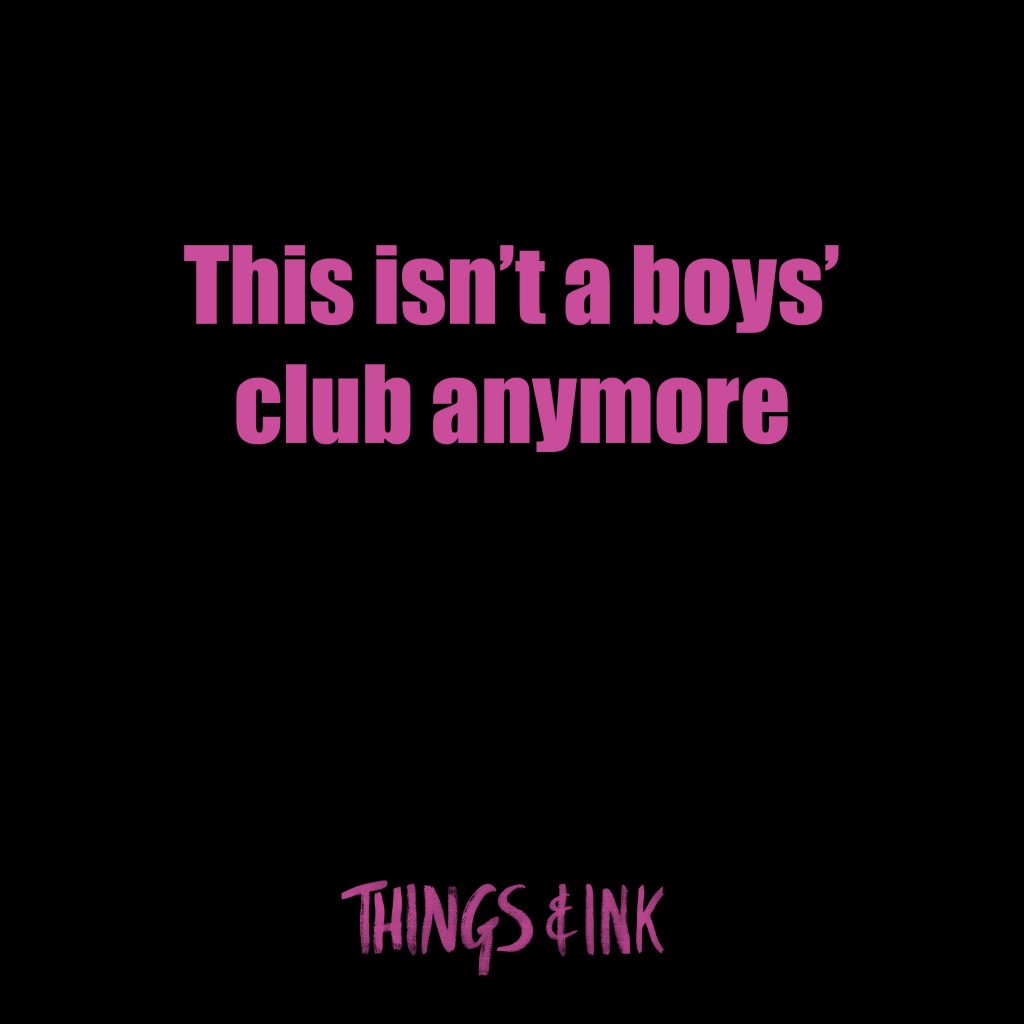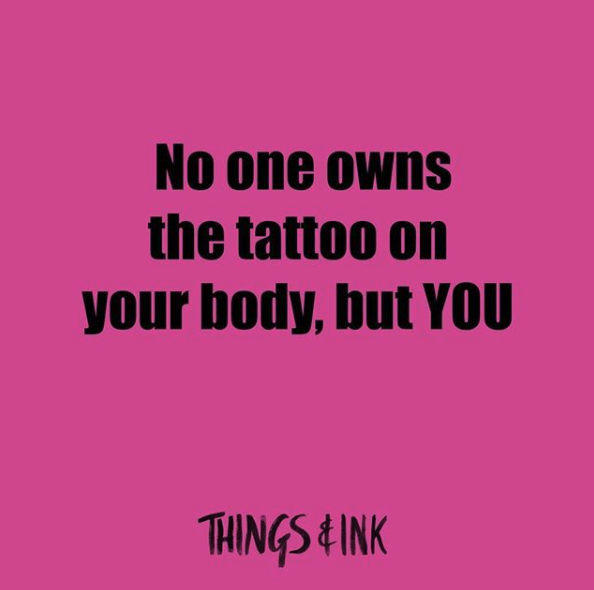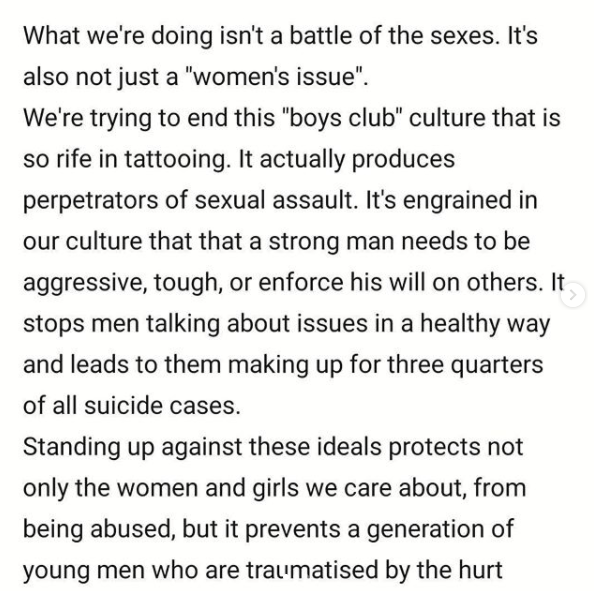We chat to Manchester-based business owner Sare Goldman, a fat positive self lover who loves tattoos, empowering others and sharing her creativity.
Being a self lover is a journey that never ends, it’s about breaking the rules that society has set and embracing everything about yourself – good and bad.
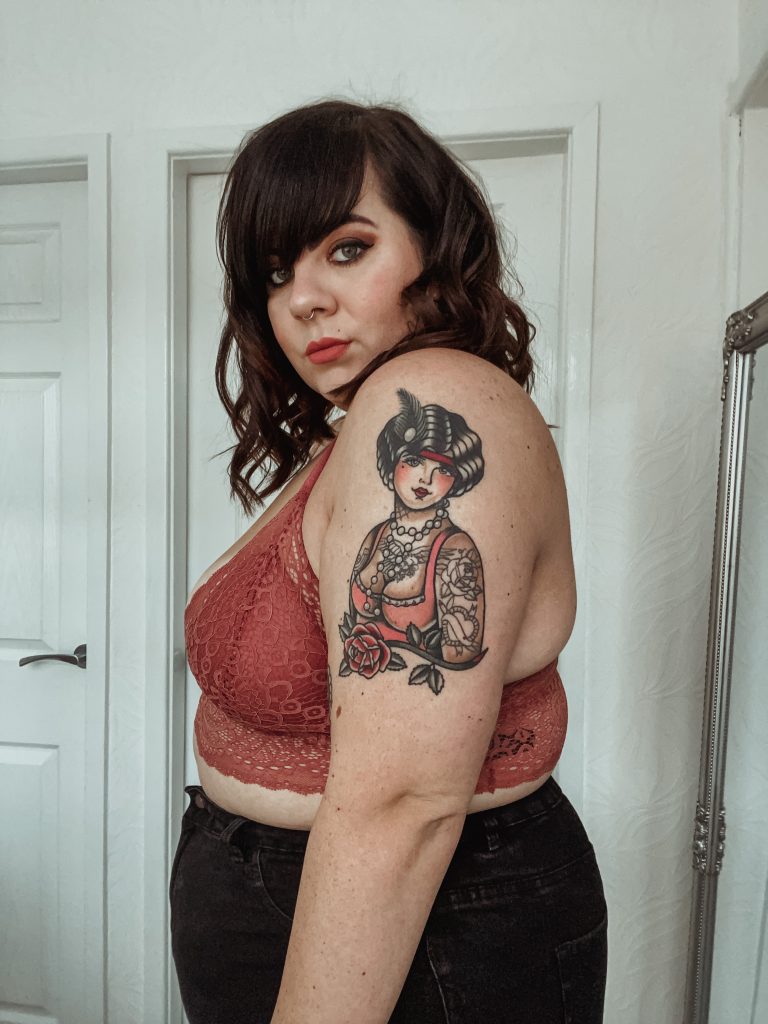
I have dabbled in self love for around two years, I followed plus size girls on Instagram and started to follow their journeys, but it really came to life in June 2019. My parents were going through a divorce which hit me hard and I wanted something else to focus on. I had always struggled with my weight, I yo-yo dieted and I was never happy with my body. In June 2019, I decided to ditch the diet and just start to love and embrace myself instead. I started to take pictures of my body, clothed and unclothed (in underwear), and started to post them on Instagram. I was never prepared for the amount of support I got from other like minded people who were on their self love journeys just like me! Since then I have never looked back!
I’m very much an activist at heart and I strive to be the voice for people who feel that they don’t have a voice. So self love is present in my life every day. Whether that’s practicing it myself or by trying to empower others to see that they’re amazing!
Self love is about trying to train your brain to rethink the rules around your body and the clothes your wear. Of course I still get body conscious from time to time but it’s about always speaking to yourself in a kind way. No matter who you are, I can guarantee that you have something that you’re hung-up about when it comes to your body; whether that be fat rolls, cellulite, stretch marks or your teeth. Life is far too short to be worrying about what you look like. No matter what you look like, you are allowed to exist freely, you are allowed to wear what you want, when you want and live free from judgement. Self love isn’t selfish and you deserve to love your body.
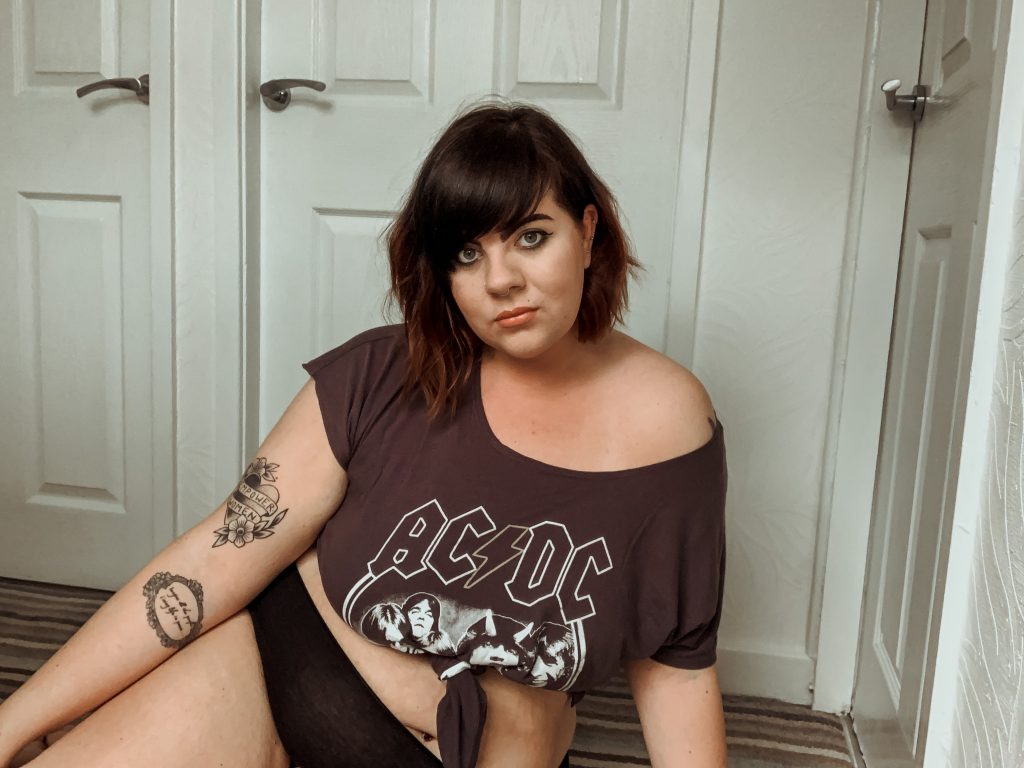
Being a fat positive self lover can be hard at times as it’s about changing people’s mindsets, which can take a long time! I find that the best thing to keep me going in the right direction is to simply get dressed up and take selfies. It’s so empowering to look back on the pictures and think “OMG, I’m so gorgeous”, and there is absolutely nothing wrong with thinking so highly of yourself! If I ever get disheartened or body conscious, I just talk to one of the many friends that I’ve made in the self love community and they put me on the right track again! They are so supportive and it’s great to know people who are exactly like you.
Fat positivity is about accepting fat bodies and not wanting to change them. It’s about normalising the fat body and teaching people to not see fat bodies as “disgusting” and “unhealthy”. Being fat positive isn’t “promoting ob*sity”, it’s simply just trying to show society that fat people shouldn’t be shamed for just existing. I love empowering other people, I love encouraging them to see how gorgeous and amazing they are and yes, sometimes, people can be quite rude and ignorant but when you know you’ve empowered another girl to wear a crop top then it’s so worth it!
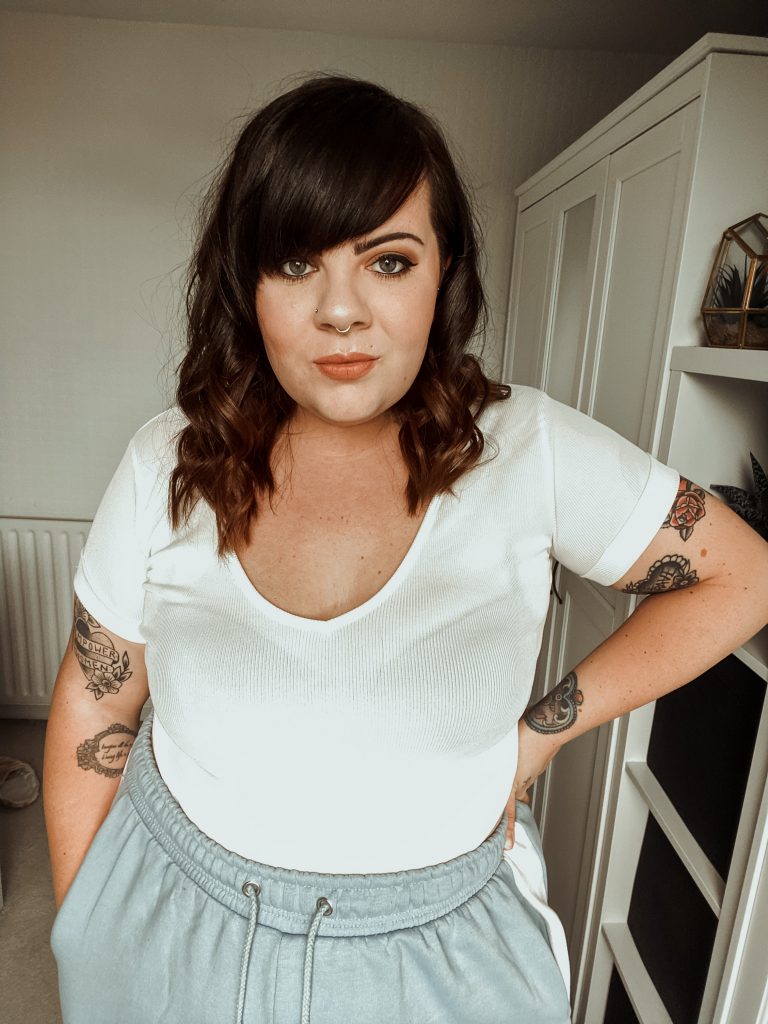
Tattoos have helped my self love journey so much! My body is a piece of art already so the tattoos just add to it. I’m not using tattoos to cover my body, I’m using my body to showcase some amazing work that makes my body look even more beautiful! I have around 20 tattoos and my first tattoo was when I was around 14. My ex was getting a tattoo and I was intrigued, so I bit the bullet and got a small star near my bikini line so my mum wouldn’t see it. It’s safe to say that I’ve had it covered up now! From the age of 16-18 I used to be obsessed with stars to a point where I have about five different sets on my body, all of which I’m planning to get covered up with some other amazing work!
My choice of tattoos have definitely changed since I’ve started my self love journey. I have a few women/feminist related tattoos and a few with empowering words on them such as “Stay True”, “Empower Women” and “Tough Girl”. My favourite type of tattoo style is neo traditional. I absolutely love the style and can’t wait to get more once lockdown is over!
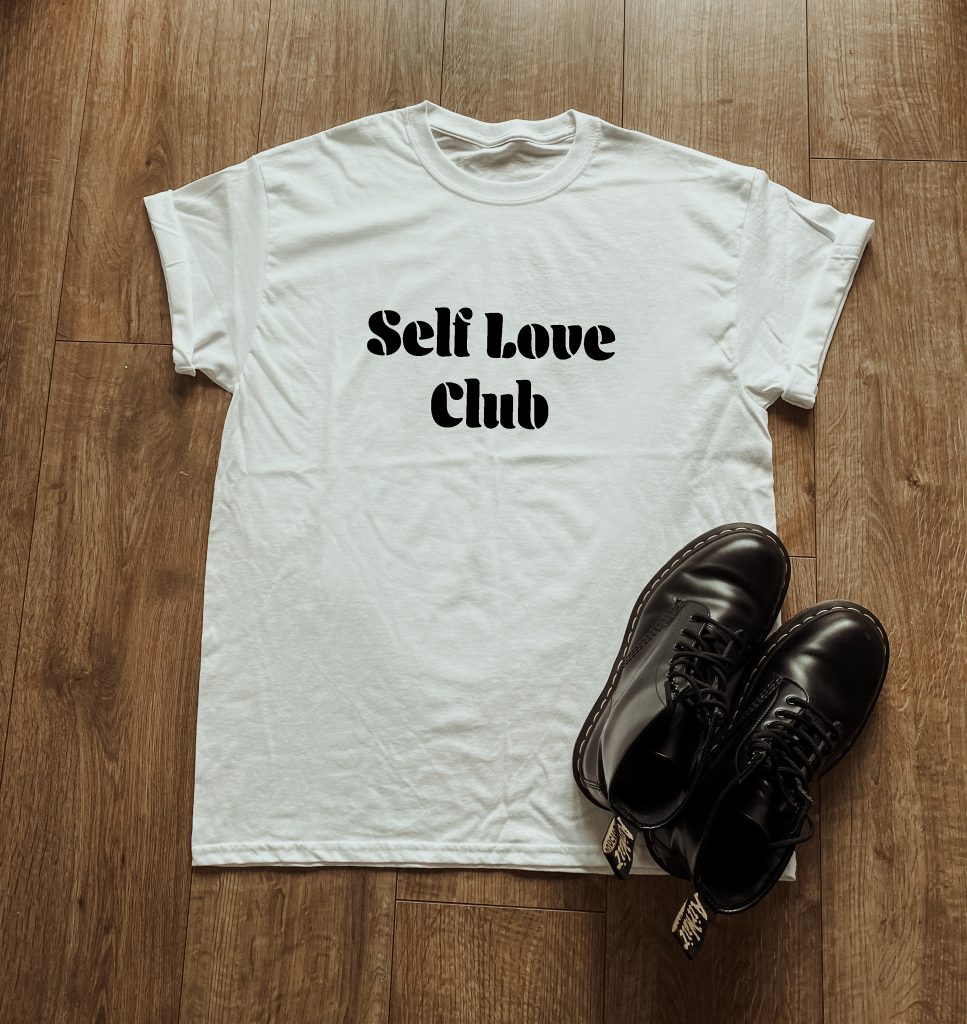
Tattoos definitely inspire the pieces I create ! I can’t draw so the pieces I create are the next best thing. I started my business, Creative House UK, in July 2019, I had spent years trying to think of different business ideas because I’d always wanted to be my own boss.
Since a young age, I’d always wanted to be a hairdresser so took a fast track course to qualify. Once I qualified, I soon lost my passion for it. I then dabbled in photography and started to do model and family photoshoots, but then I found it too stressful to try and get that perfect shot. Then I had a lightbulb moment – “OMG, I can make prints!” I had made all of my own wedding stationery and it just seemed like the perfect idea.
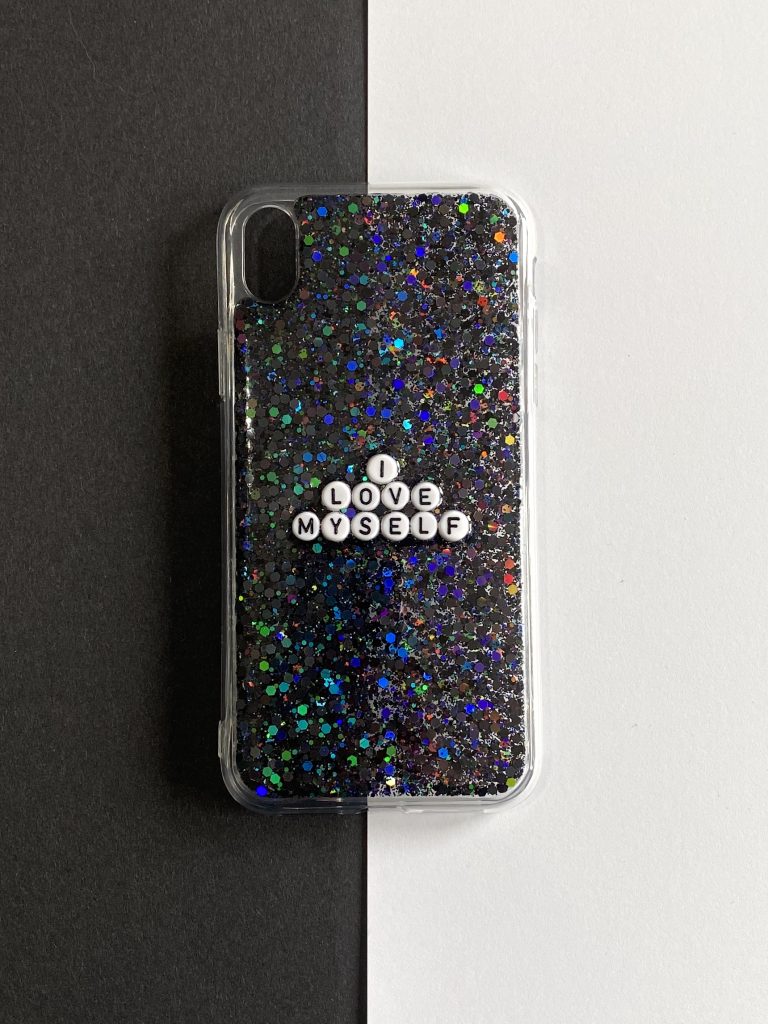
I uploaded my first print on Etsy and when I got my first sale, I was just ecstatic! Fast forward to now and I have my own website and I’m now selling prints, phone cases, t-shirts, tote bags and other bits and bobs and I love every second. I’d always wanted a creative job but could never find anything that suited me until this.
I love to create empowering pieces that inspire people to love themselves. I want to create pieces that when people look at them or wear them, they feel so good about themselves. My t-shirts have been a massive hit and so many of my self love babes are wearing them. It makes me so proud to see them wearing something I’ve created, knowing that they feel empowered and that they are loving themselves wearing it.
